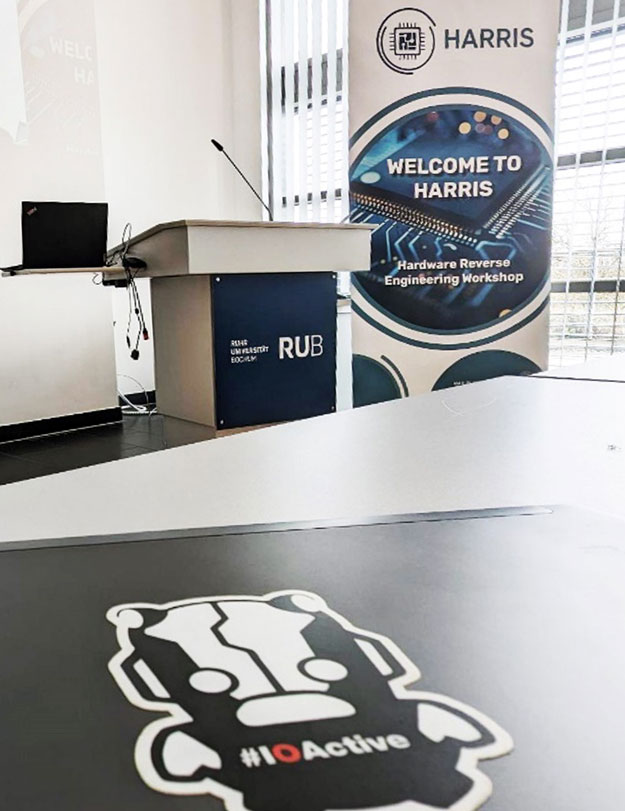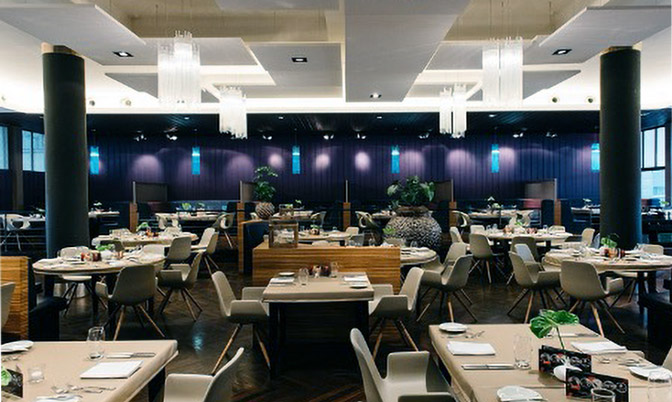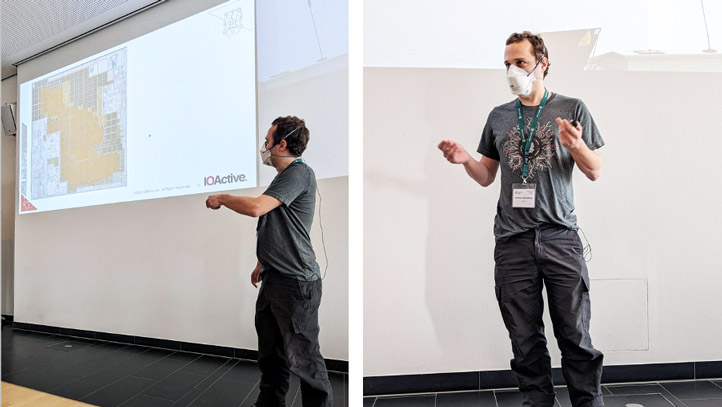The Hardware Reverse Engineering Workshop (HARRIS) is the first ever annual workshop devoted solely to chip reverse engineering, and 2024 was its second year. IOActive has been present both years, and this year I attended to see what all the fuss was about.
Background
The workshop is organized by the Embedded Security group of the Max Planck Institute for Security and Privacy (MPI-SP) together with Cyber Security in the Age of Large-Scale Adversaries (CASA) and Ruhr-University Bochum (RUB).
Christof Paar is a founding member of MPI-SP, and HARRIS is his latest brainchild, following the success of the annual Conference on Cryptographic Hardware and Embedded Systems (CHES) that first took place in 1999. Considering the strong links between HARRIS and MPI-SP, it’s no surprise that the 2023 and 2024 workshops were both held there.
Day One
Upon arrival at the venue, it became immediately apparent how well-organized the event is. Registration was simple, and there were already many casual conversations going on between the organizers and attendees. Privacy is respected by way of providing white lanyards to attendees who do not wish to be photographed, while the rest receive green. Affiliations are also optional on the name tags. I estimated the attendance to be around 125, compared to last year’s number of 90. I fully expect that trend to continue given the efforts of the fine organizing committee. From my discussions, I would estimate the split was roughly 50% academia, 25% industry, and 25% government. Geographically, Singapore, USA, Canada, and the vast majority of European countries were represented.

The presentations on day one were divided into four sessions, the first being my personal favorite: Sample Preparation. 😊 The standout talk for me here was by REATISS, where they really brought home two things:
- What a difficult job chip deprocessing is
- How amazing REATISS are at chip deprocessing
One of several fascinating facts that the talk illustrated was how planarity is key during deprocessing, which of course I know only too well. What I didn’t know, however (or at least what I never got around to calculating), is that the planarity required across a 1mm2 area of interest within a <10nm technology node chip is 25nm. This is equivalent to the total area of a football (soccer) pitch being flat to within 2mm. Now that is flat!
REATISS also touched on the challenges of characterizing 3D NAND Flash as well as the novel materials being utilized in the latest IC technologies, such as cobalt metallization.
Allied High Tech Products followed this with an excellent presentation of how toolset selection and a well-thought-out workflow are vital in effective chip/package deprocessing. They also showcased the deprocessing of some extreme examples of modern multi-chip packages.
Between sessions, there were informal discussions divided into different challenges in hardware reverse engineering. This was a great idea and encouraged new and old connections to discuss their techniques without giving away too much of their secret sauce. 😉
Day One concluded with a dinner at a very nice restaurant in the Bochum city center, where attendees could sit with whomever they pleased and continue discussions over a pleasant meal and drinks.

While some continued to socialize into the small hours, I retired to my hotel for a good night of sleep to make sure I was prepared for another day of talks, making connections, and inevitably learning lots of new things.
Day Two
A slightly later start than yesterday, but it allowed folks like me to catch up a little on email and activity back at home base. Kicking off today was the keynote, which was superbly delivered by Paul Scheidt of Synopsys. Entitled “Perspectives from Four Decades of Chip Design,” Paul provided fascinating insight into his career in the semiconductor industry. He contrasted how much the industry has advanced, alongside several instances where ideas have been recycled from previous generations of chips and systems. Following that, there were three further sessions and some more opportunities for informal discussion (the full agendas are here). The focuses for the talks today included FPGA and netlist reverse engineering.
Of course, for the IOActive folks, the focus and highlight of Day Two was our very own Dr. Andrew Zonenberg, presenting during the afternoon case studies session. “Secure Element vs Cloners: A Case Study” explores an example wherein a platform may be protected for both revenues and user experience: the OEM wants to protect their accessory market as best they can, and for as long as they can, while competitors are racing to make a compatible version of the accessory in question. These are potentially billion-dollar markets, so the reward is high and invites third parties with serious budgets to perform full netlist extractions of chips in order to carry out Focused Ion Beam (FIB) attacks. A multi-million-dollar lab and the associated talent (the latter often being the most difficult part) does not seem too much of an investment when the return on that could be tens of millions of dollars per year!
Information on the range of IOActive’s Silicon Security Services can be found here.
Andrew presented flawlessly (no surprises there), and the talk was very well received indeed. Some interesting follow-up conversations ensued, which for me capped off a very worthwhile event.

Conclusions
HARRIS 2024 was an extremely well-run event, which is not surprising considering the success of CHES under Christof Paar. For anyone that is involved in semiconductor reverse engineering, this really is a must-go. The format works very well, provides plenty of opportunities for networking, and the quality of talks was exceptional. I was impressed and am very much looking forward to attending next year, and with something even more interesting for IOActive to present. Roll on HARRIS 2025!

